A diamond is forever is one of the most-effective marketing campaigns of all time. Seven decades since De Beers launched its 1948 sales pitch, more than 70 per cent of engagement rings still feature a classic white diamond.
The trend seems to be turning, however, as more couples opt for fancy-colour diamonds, unusual gems and fancy shapes in order to tell their unique love story.
“The bridal market is changing and the bridal consumer is changing,” Stephen Lussier, chairman of consumer products at De Beers, recently told JCK.
SAMS Group CEO Steve der Bedrossian, whose company distributes Pink Kimberley and Blush Pink Diamonds, agrees: “Couples are looking at different options to style up their engagement rings,” he says. “Due to social media, clients are shown far more styles than what they would in a jewellery store, which influences every detail in a design.”
At the same time, retail jewellers are evolving their design processes and sales techniques in order to accommodate the changing desires, expectations and budgets of this category’s largest group of current and future shoppers: Millennials and Gen Z. These consumers combine their desire for unique retail experiences with strong demand for unique, personalised pieces that both attract attention and tell a story.
Jewellers are turning to unusual engagement rings to satisfy these needs and capitalise on this critical category, which can be the first chance to form relationships with customers that can last years; buying an engagement ring is often the first step in the life journey of a customer, who will go on to purchase wedding jewellery, anniversary gifts, push presents and more.
Cultural shift
The way consumers think about and purchase engagement rings has changed in recent years. Younger generations take a less-traditional view of marriage but there’s still a strong connection between love and rings, whether promise rings, commitment rings or engagement rings.
“Millennials are really looking for uniqueness,” explains Yseult de Crombrugghe, project manager Langerman Diamonds, which exclusively deals in fancy-colour diamonds. “They want a symbol of their love that reflects their story. Future brides are looking for rings that come off the beaten path whilst having the same sentimental value as traditional rings.”
Kelly Safarewicz, retail leader at Pieces of Eight gallery in Melbourne, agrees: “For many, an emotional connection to a piece is enough to win them over and I find more people are searching for a unique stone that reflects their unique relationship.”
Marriages are also taking place later. The median age of marriage has been steadily increasing since 1950 and is now 32 for men and 30 for women, according to the Australian Bureau of Statistics. The nature of proposing has changed and so has the ring-buying process.
Justin Linney, creative director at Linneys jewellers in Perth, says the engagement ring is now more likely to be a “combined decision”. “Culturally, roles are evolving. More couples are designing the ring together these days,” he says, adding that this is a trend popular in same-sex marriages.
“For our same-sex couples, it is a mix of making a ring for the proposal or having the couple come in together and make matching rings or different designs to suit their individual styles.”
That said, traditional proposals aren’t finished yet: “The surprise proposal is alive and well so there are still some romantics out there,” Linney says.
Jacqueline Fowler, jewellery consultant, Holdsworth Bros in Victoria, says, “Many times couples will come in together to get an idea of what they like and we make notes. When the time is right, the partner will come back and we have all the information – from design to ring size. That way they both get to enjoy the right ring and the surprise element. Win-win!”
The colour of love
When it comes to selecting a standout stone, Der Bedrossian believes nothing is more unique than pink.
“Pink diamonds are extremely rare so they add a touch of class,” he says. “Blush Pink jewellery takes the lighter hues of the Argyle pink diamond and arranges them in a design to maximise their colour and radiance – most are pave or cluster-style designs. Pink Kimberley jewellery, on the other hand, uses larger, darker Argyle pink diamonds to achieve a boutique-style masterpiece.”
De Crombrugghe says the demand for fancy-colour diamonds has “exploded over the last couple of years”, which she puts down to celebrity engagement rings, scene-stealing red-carpet jewellery and record-breaking auctions. She also notes that fancy-colour diamonds are harder than other coloured gems, making them ideal for everyday wear.
“Uniqueness and custom-makes are very important for couples today and colour is a great way to personalise a ring,” de Crombrugghe says, adding, “One of our customers asked for a diamond matching the eye colour of her life partner. We found the perfect match with a beautiful fancy greenish-brown diamond.”
Linney says custom-makes with yellow, champagne and black diamonds are popular for clients wanting something “different to what their friends might have”, adding that pink diamonds are also highly sought after: “We enjoy using pink diamonds either as side stones, centre stones or as halos to frame a stunning white diamond.”
Fowler has also noticed a demand for Argyle pinks and chocolate diamonds, as well as yellow-diamond halo rings.
“Sapphires are a very popular choice at the moment; however, we also have couples that choose aquamarines and rubies,” she says, adding, “Tanzanites have also become popular in recent times.”
The demand for sapphire engagement rings in particular has seen an uptick after receiving royal approval. Princess Eugenie of York made headlines around the world in 2018 when her fiancé proposed with an oval-cut Padparadscha sapphire from Sri Lanka, estimated to be 3 carats.
Sasha Gammampila is founder of Deliqa Gems, which deals exclusively in sapphires of all colours. She says the demand has been “consistent” and the royal ring “certainly sparked a trend in sapphires”.
Katherine Kovacs, director K&K Export Import, agrees: “In the last year or two, we have noticed a significant spike in calls requesting colour gemstones for use in engagement rings.
“Top of the list for us is sapphire; Sri Lankan (Ceylon) sapphire dominates but demand for Australian sapphire is growing – particularly in blue, green and teal colours – often with clients specifically requesting that the stone is Australian.”
Kovacs says that sapphire and ruby are both from the corundum family and have the suitable hardness and toughness for everyday wear.
“Spinel is also great choice for wearability,” she adds.
Another growing trend is the ‘salt-and-pepper’ or ‘galaxy’ diamond – white diamonds filled with dark inclusions that give the stone the appearance of the night sky or stormy seas.
Safarewicz says Pieces of Eight clients are “drawn to their [galaxy diamonds] individuality and distinct look. There is certainly a trend of young couples in their twenties and thirties looking at these stones to feature in their engagement rings.”
Heavily-included and tinted diamonds can also appeal to price-sensitive consumers, according to Safarewicz, who says they “allow clients with a more modest budget to purchase a diamond while still appealing to their desire for a unique ring”.
Pearls, too, are becoming more popular in engagement rings – so much so that West Australian pearl jewellery company Kailis has launched a bespoke engagement-ring design service.
“We have seen great demand from Kailis customers who wanted a bespoke engagement ring,” Julian Power, Kailis head of design, says. “Australian South Sea pearls are the rarest in the world; it comes down to couples and individuals wanting to express their individuality and have a beautiful ring that is customised to their taste.”
Linneys has also had requests for pearl engagement rings, though the jeweller advises customers that pearl engagement rings will wear differently to a diamond engagement ring due to the fragility and softness of pearls.
Similarly, gems such as amethyst, emerald and aquamarine do not share the same hardness as diamonds, sapphires or rubies. These gems have become more popular in the revival of the birthstone engagement ring, which was the tradition before white diamonds.
Birthstones have a bold look and add a beautiful sentimental element to the ring – some couples choose a combination of their own birthstones or even the birthstones of their children. Yet the softness of some birthstones means they are only suited to use as small accent stones or channel-set into the band to minimise the risk of chips and scratches.
Shape remains solid
Coloured gemstones may be giving engagement rings a modern look but where shape is concerned, Fowler says it’s all about tradition.
“Couples are still looking for the classic round-brilliant in a claw setting,” she reveals. “Halos are really popular at the moment combined with fancy shapes like pear, oval and marquise centres.”
De Crombrugghe agrees, saying, “Round diamonds are still the most popular but they are not always the best choice for fancy-colour diamonds as the round-brilliant cut has been designed to enhance the whiteness of a colourless diamond.”
Linney says oval-cut diamonds have been trending over the past 12 months, adding, “We have also noticed more requests for 18-carat yellow gold.”
Meanwhile, Der Bedrossian notes that pave-style clusters in pink are proving popular, as are pink-diamond halos around a white diamond centre stone.
“White gold is still the king of all metals for engagement rings,” he adds.
The most-popular searches on apps like Instagram and Pinterest reflect these trends, where oval stones, petal-effect halos and half-halos, sunbursts – a marquise or pear-cut diamond with a round-diamond halo – and gold bands have topped consumers’ wish lists.
Eyes on the price
According to the New York Times, a broad survey of US adults listed the median payment for an engagement ring at about US$2,000, with just seven per cent spending over US$10,000. Another US poll found that 68 per cent of Millennials expected to pay US$2,500 or less for an engagement ring.
In contrast, the average price of engagement rings in Australia is $5,000, according to the 2018 Australian Wedding Industry Report (AWIR), a survey of more than 4,000 couples conducted by Easy Weddings.
This gap presents a marked challenge for jewellers but, as with any jewellery purchase, a thorough understanding of one’s customer and the value of the product is the key to successful sales.
An engagement ring is a deeply-personal purchase. With more and more young couples now living together and saving for their home deposit or paying off a mortgage, splashing cash on a huge diamond is no longer feasible.
“Clients are telling us that the type of consumer that requests a coloured-gemstone engagement ring likes to have something unique but is often driven by price – you can usually get a bigger ring for fewer dollars with a colour gemstone than you can with a diamond,” Kovacs explains.
Even at the higher end of the market, Linney says price is still a factor. The key is to find the perfect ring for the customer’s budget: “About $10,000 seems to be a common figure that guys and girls are prepared to spend on an engagement ring,” he explains. “Purchasing an engagement ring is one of the most important financial decisions couples will ever make so it is important that they are well-informed and make the right choice.”
For this reason, couples are often shopping for their engagement rings together, discussing exactly what they want and what they can afford.
“Often couples come in just knowing their budget,” Fowler confirms. “Others come in with a design including the exact diamond size and quality they would like.”
Social media has enhanced the proposal, making it more public. As a result, the story of choosing the ring, the significance of the personal design elements and the unique, photogenic appearance of the finished product are all major selling points.
“Deciding what to spend on an engagement ring is a very personal decision,” Fowler says. “What our clients end up spending is based on a combination of many different things. But ultimately the significance of the ring and enjoyment from wearing it and showing it off continues long after the purchase price is forgotten.”
Safarewicz agrees, saying, “Clients can often be swayed to go beyond their initial price range by a spectacular stone or to buy something bigger than what they had planned; however, there is almost always a budget and it remains an important factor for clients.
“We never push people to a pricier option; we always look to find a beautiful stone that is within the budget,” she says.
Consumer research recently conducted by the Gemological Institute of America (GIA) found that 69 per cent of US bridal customers ‘prefer a diamond with an origin story’. This is one area where natural diamonds and other gems have an edge over materials like synthetic moissanite and cubic zirconia.
While fancy-colour diamonds have a reputation as being more expensive than other diamonds and gems, de Crombrugghe stresses, “A natural, fancy-colour diamond doesn’t need to be big to be stunning. Also, pure colours are more expensive so why not offer a colour diamond with a secondary hue? This will often be even more charming and hypnotic than a straight colour. Subtle fancy light colours are also far less pricey than fancy intense or fancy vivid colours.”
She adds, “Nobody will ever notice very small inclusions without magnification.
What really matters is the energy and the beauty that will be there every single day on the finger of their life partner. The lucky owner of this fabulous stone will be the only one to know that all these small grading deviations are nature’s signature of that unique diamond.”
Der Bedrossian notes that pink-diamond halos and accent stones have become more popular as “premium customisations” for engagement rings, as large pink diamonds are too expensive for most consumers.
Another way around the difficult price question is to offer financing. Online retailers have embraced the practice and Blue Nile and James Allen both tout interest-free financing either through a payment plan or an ‘in-store’ credit card.
Buy now-pay later services like Afterpay and ZipPay have also been adopted by parts of the jewellery industry, though they are not always suited to smaller retailers or large purchases.
Another rising trend is the ‘placeholder ring’ or ‘loaner ring’. Generally priced at $500 or less, they suit a groom-to-be who hasn’t settled on a design, can’t afford the dream ring yet or does not want to risk travelling to the proposal location with the real thing.
The placeholder ring can be inscribed with a unique proposal message and kept as a sentimental token of love, or act as a deposit and be swapped at a later date when the couple is ready to choose the bride’s engagement ring.
In the US, Helzberg Diamonds conducted market research and found that 60 per cent of men listed ‘selecting the ring’ as the hardest part of proposing. A similar number felt it important to involve their partners in choosing the ring.
“I’d have to say that buying an engagement ring is one of the scariest – and most rewarding – experiences for most men. You want to be excited with them and share the special experience,” Fowler says.
The placeholder means the romantic proposal tradition can continue – without the stress – and it gives the jeweller the opportunity to create another beautiful memory for the couple when they come in to design their dream ring together.
Above all, the engagement ring signals the start of something, in both the literal and emotional sense. Combining modernity and tradition, this piece of jewellery is a symbol of love, hope and happy memories – one of the most meaningful purchase decisions people will ever conduct. It’s the jeweller’s privilege to help make the moment unforgettable.
WEDDING JEWELLERY TRENDS
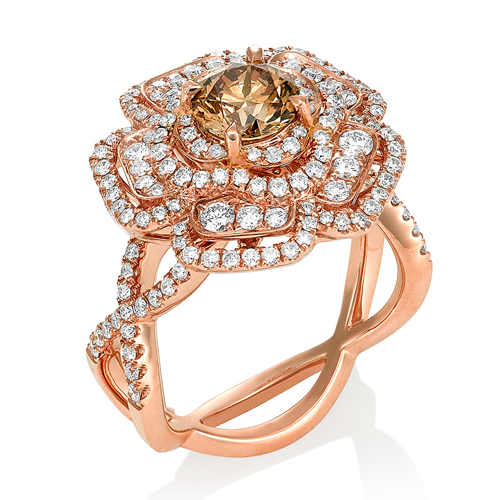 | 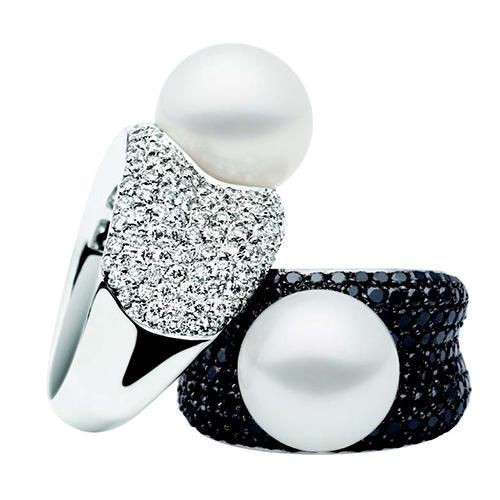 | 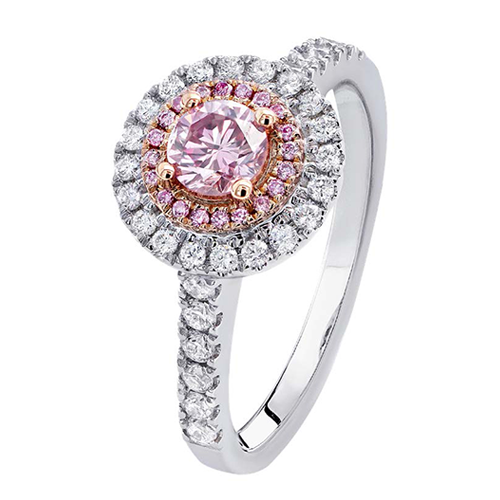 |
Holdsworth Bros | Kailis | Sams Group Australia |
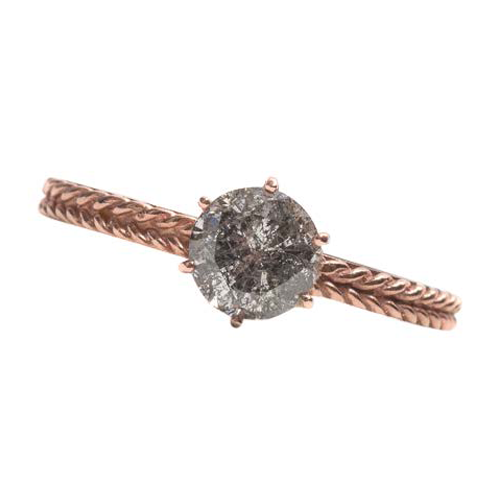 | 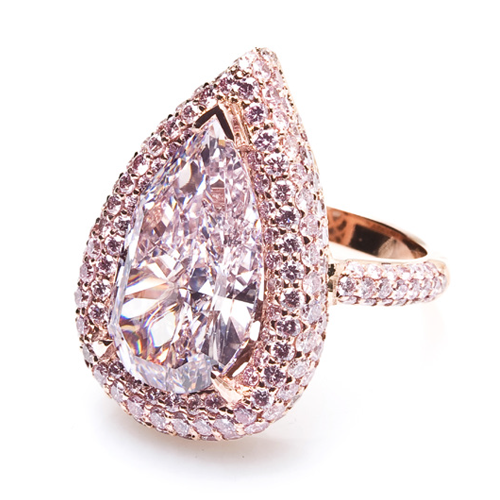 | 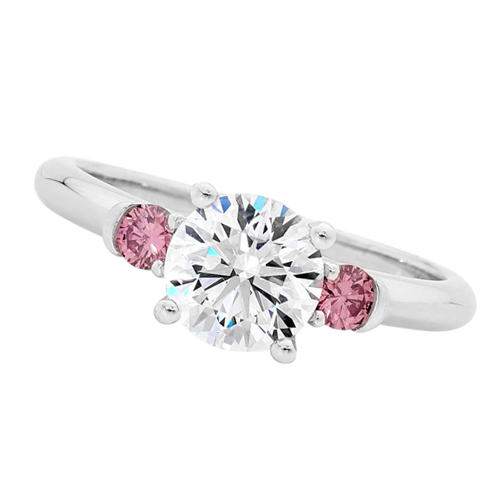 |
Nina Oikawa/Pieces of Eight Gallery | Langerman Natural Color Diamonds | Linneys |
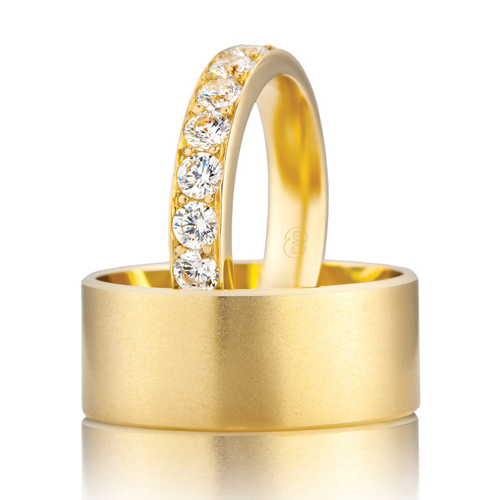 | 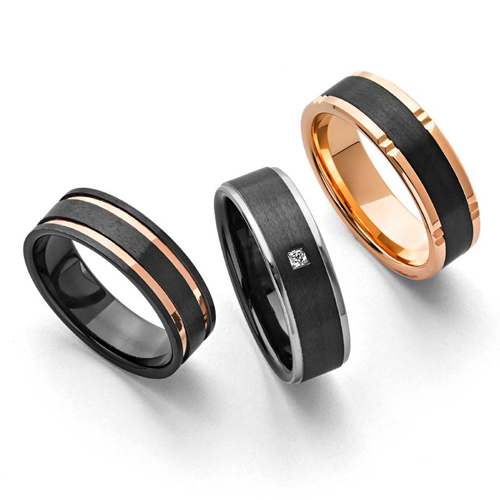 |  |
Peter W Beck | Worth & Douglas | RJ Scanlan |
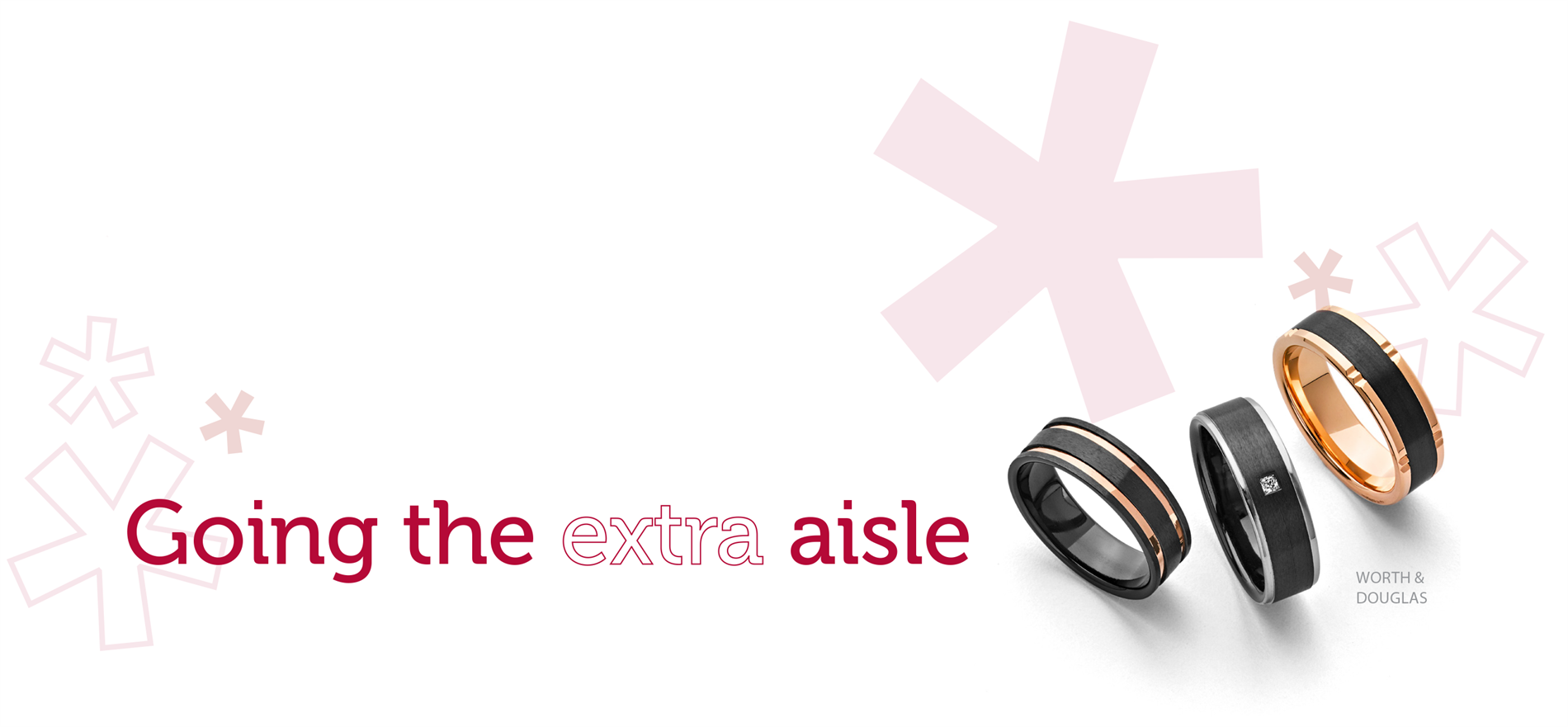 |
After “Yes” comes “I do”, which is another opportunity for jewellers to create the memory of a lifetime by selling the wedding ring, the bridal jewellery and the wedding-party jewellery. Wedding rings are priced lower than engagement rings and don’t have the same fanfare, but there’s no reason this jewellery purchase should be an afterthought. “The appeal of wedding rings is because of tradition and ceremony – a wedding ring is something worn by a wide range of people with a wide range of budgets,” Olivia Baird, marketing co-ordinator at Peter W Beck, says. “A basic lightweight, 9-carat, yellow-gold wedding ring can be purchased at retail for as low as $150 but those people with a higher budget will spend many thousands of dollars on their wedding rings.” These rings are another chance for a couple to commemorate their love with personal or matching pieces that show off their flair for design. “Over the last 12 months we have seen continued popularity of our zirconium range in men’s wedding rings,” Baird says. “The striking black offers a modern twist on our classic styles, while our zirconium-and-gold styles make for a sophisticated combination of materials in a wedding ring.” Chris Scanlan is manager at RJ Scanlan & Co, which distributes Dora wedding rings for men. He agrees that black has been a trend, especially contrasted with yellow gold or even rose gold, and that carbon fibre also has a strong following. Chris Worth, of Worth & Douglas, has observed the same trend, noting, “Two-tone with a textured finish is still a popular choice for men’s rings. While we’re still finding the choices to be more on the conservative side, men are stepping away from the traditional look and we’ve seen this particularly with the black ‘ZiRO’ rings.” Scanlan says the average price for a wedding ring has dropped considerably, maybe by as much as 25 per cent in five years, but adds, “There is still a large market out there that does want to wear something of quality and of value on their fingers.” Similarly, in the women’s market, Baird says platinum has been growing in popularity due to a recent price fall, while designs have been trending towards “very dainty widths of 2–3mm”. Worth confirms that “diamond-set rings in white gold or platinum” are still very popular for ladies’ rings, while there are growing trends for claw-set wedding rings and a shift back to yellow gold for both men and women. One trend across both engagement and everyday jewellery is stacking rings. Otherwise known as ‘the Triple’, the engagement ring is worn between the wedding ring and an eternity ring that is often given either on a wedding anniversary or on the birth of the couple’s first child. We offer a wide range of unique engagement-ring designs and always ensure they can be perfectly coupled with a specially-designed wedding ring as a set,” Worth says. Meanwhile Baird confirms, “We are seeing a resurgence in the popularity of wedding rings designed with a curve to fit perfectly against the engagement ring.” For retailers, stocking a variety of men and women’s styles is also essential. “In Germany and Scandinavia, nearly all couples will go in and buy matching his-and-hers wedding bands,” Scanlan explains. “This doesn’t really happen in Australia. More often, you’ll have a woman buying a wedding band to suit her engagement ring, while her fiancé will buy a wedding band to suit his style.” Baird says couples still purchase wedding bands together, despite a preference for differing styles. “Couples will often choose wedding bands where one element of the set is matching – the material, finish or profile perhaps. Matching one of these elements means the rings fit together but still give the couple the opportunity to highlight their personal style,” she explains. Scanlan also points out that many men and women are not able to wear a wedding ring at work for safety reasons. In this case, the ring could come with a chain so it can be worn under clothes or alternatively come in a secure display box so it can be kept safe when not worn. Here comes the bride – and bridesmaidsWedding jewellery doesn’t stop with the rings; brides also consider earrings, necklaces, bracelets and decorative pieces for their hair or veil. The Australian Wedding Industry Report (AWIR) found that the average couple has seven to 10 people in their wedding party, providing ample opportunity for jewellers to suggest matching jewellery for bridesmaids and cufflinks for groomsmen. A classic choice of adornment for many brides and their bridal parties is pearls, which traditionally symbolise femininity, purity and loyalty. “We create modern pearl jewellery at affordable prices for the bride and bridesmaids that look classic and on trend,” Ikecho founder and director Erica Miller says. “Brides like to feel special with some extra bling, while they tend to choose a more classic style for their bridesmaids.” The soft lustre of pearls and their range of colours, including black, pink, cream, gold and pure white, complement all skin tones as well as different metals. “Pearls are timeless and elegant, which is often their appeal brides and mothers-of-the-bride. They complement almost every outfit, including the white tones in a wedding gown,” Kailis head of design Julian Power explains. “Kailis offers many different ranges to appeal to different tastes, including the Classics and Contemporary collections, an Art Deco-inspired range called the Charlston and the Kailis silver collection, which offers perfect gifts for the bridal party.” When it comes to selecting bridal jewellery, Power reveals that Kailis’ new flagship boutique in Perth – opening in August – will have a fitting room for brides to try on jewellery with their wedding gowns. Ikecho also offers marketing support to retailers, specifically-oriented towards helping brides select the perfect pearl jewellery for their big day. |
READ EMAG